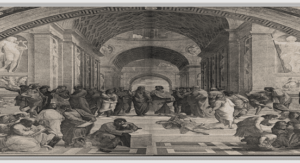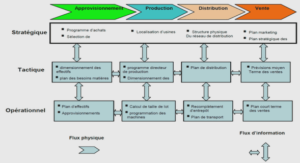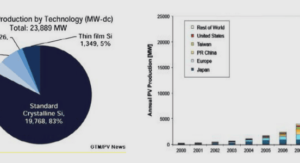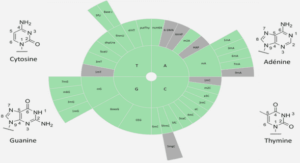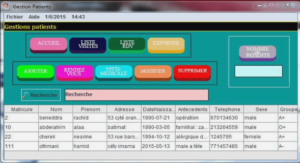Gender and Moral Decadence in Amma
Darko’s Faceless and Not Without Flowers
The Yoke of Gender Disparities and Superstitions
In the image of many African societies, the feminine condition in Ghana is determined by a wide-ranging set of traditional customs and beliefs, which generally favour the male sex at the expense of the female. In her pursuit for change, Amma Darko has resolutely taken to her pen point to denounce existing gender and traditional creeds, which have, for years, kept women under subjugation. Just as she started in Beyond the Horizon (1991), and later, in The Housemaid (1998), the novelist continues in Faceless and Not Without Flowers to stress women‟s prejudicial treatment with regard to stereotypical and superstitious views. Among other tenets fretting the woman, the novelist brings to the fore a long-standing tradition which sets preference on the male child to the detriment of the female. One can recall Okonkwo‟s phallocentric mind in Achebe‟s Things Fall Apart when, considering his young daughter‟s predisposed qualities and abilities, he wishes that “she [Ezinma] should have been born a boy” (1958: 55). In The Joys of Motherhood, Emecheta deals ironically with the issue, as women are made to internalise and give in to the culture of gender favouritism. When she loses her baby boy, Adaku, the so called rebellious and stronger of Nnaife‟s two wives, goes into a deep depression and cannot hide her penchant for male children. As Nnu Ego‟s son, Oshia, tries to console her by saying that she still has her daughter Dumbi, Adaku snaps back saying “you are worth more than ten Dumbis”; and, heartbroken, cries out to God: “Oh God, why did you not take one of the girls and leave me with my male child” (1979: 128). In Faceless, this kind of gender discrimination manifests itself through Ottu‟s behaviour in the midst of his family. At seven, Kabria‟s son is too conceited about his male status; and does not hesitate to remind his entourage of this must to give him the place he merits in the house. Darko‟s omniscient narrator shares her astonishment when he first meets the little boy. He exclaims: “And what attitude Ottu carried upon his little shoulders for being a boy” (36). As a male child, Ottu is too early imbued in the masculinist life-force, which advocates the traditional favouring of sons. In being Kabria‟s only son, he strongly believes that “he has done his mother a favour” (37) and holds her to ransom whenever the latter decides to act tough against his whims. To his mother‟s reproach when he lost for the second time his school lunchbox, Ottu has this to react: “Mum, do you know that I cut short your problems by coming as a boy and earned you respect?” (37). As such, he expects to earn not only from his mother but also from his sisters “a special treatment at home” (38). Giving the 8 example of the king-like treatment of his friend in the neighbouring family, Kabria‟s son continues: He is also the only son. Just like me. And his grandmother said he is special. Veeeeeeery special. Yes, you see […] and by coming as a boy, he earned his mother plenty of respect and ended her pains. His grandmother said that had my friend not come as a boy, she, being my friend‟s father‟s mother, would have insisted and ensured that my friend‟s mother continued to bear more and more children till she bore a son. (37-38) The especial position that male children hold over the female is also quite perceptible in the traditional view regarding modern school education. Part and parcel of the cultural status quo is the lack of prominence with which parents perceive the intellectual training of their young daughters. While promoting boys‟ academic elevation, diverse arguments are indiscriminately put forward to counter girls‟ school training. In Nervous Conditions (1988), Tsitsi Dangeremba had earlier deplored the issue, as it is often the gender division of labour, or the traditional roles of women, which are branded to drop out girls‟ schooling. When it comes to force her young daughter to quit school, the position of Jeremiah, Tambu‟s father, is without appeal. He shouts at the little girl: “cooking, not intellectual pursuit, defines womanhood and feminine living. Can you cook books and feed them to your husband? Stay at home with your mother. Learn to cook and clean” (1988: 15). Elsewhere, it is the young girls‟ dowry that is unjustly used to finance boys‟ school education. Adah‟s sad fate in Emecheta‟s Second Class Citizen is quite enlightening here: It was decided that the money in the family, a hundred pounds or two, would be spent on Boy‟s education. So Boy was cut out for a bright future, with grammar school education and all that. So, Adah‟s schooling would have been stopped. (1974: 18) In the light of the foregoing excerpt, it becomes clear that it is society‟s wish and will to confine women to a life of illiteracy in view to meet the gender parts of womanhood and mothering. For Amma Darko, even though the phenomenon seems to be relinquishing in urban areas, the ideology against girls‟ schooling still lures in the minds of individuals in rural regions. In Not Without Flowers, it is society‟s belief and use of superstitions which stand in the way of girls‟ school education. As a woman who had the mis/chance to carry on her studies up to university, Aggie‟s barrenness is taken as a pretext to add force to the gender biases in her village. For aunt Kakbara, their young maid‟s barrenness is no doubt linked to her high literacy. “Her infertility is a clear chastisement emanating from her dead ancestors”, she moans to her co-wife Penyin. “Her grandmothers blamed us for it [her school education]. That is the worst part of it [girls‟ education]. Our daughter‟s inability to conceive was due to 9 the many books she studied at the university” (157). According to tradition, it is part of a woman‟s credit in society not only to conceive, but also see to one‟s daughter bear grandchildren for her. And given education is superstitiously considered to be a source of sterility for women, people in Aggie‟s village “are dissuading their daughters from studying up to university level. They fear their daughters will also fail to bear them grandchildren” (157).
Sexual Exploitation and Brutality
Amma Darko‟s debut novel, Beyond the Horizon (1991), gave a clear signal of the Ghanaian writer‟s commitment against women‟s sexual exploitation and oppression. In fact, if her novel was selected among the top twelve books of the Feminist Festival in the United Kingdom in 1995, it was, in part, due to the startling impact that Mara‟s sexual exploitation by her husband Akobi had on her readership. Among other critics who have evaluated her work, Margaret Fafa Nutsukpo (2019) observes that The book [Beyond the Horizon] was a testament to the success of her contribution to the feminist cause by exposing the harrowing forms and avenues of exploitation women encounter in the African society … through the experiences of her protagonist, Mara (137). Despite a little shift in setting and characterisation, Darko‟s resolution to denounce women‟s sexual exploitation does not flinch in her last novels. If Mara‟s stirring plight in the hands of the male exploiter Akobi is much more developed in Germany, the novelist has chosen in Faceless and Not Without Flowers to confine the story to her native Ghana. Better, counter to Mara‟s singlehanded victimisation in Beyond the Horizon, Amma Darko has in Faceless enlarged the spectrum of her female victims. This is a way for her to say that the female immigrant is just the tip of the iceberg, and Mara‟s character was just a sample of the various Ghanaian women and girls suffering on the altar of male callousness. In Faceless, Darko confirms Groothuis‟ view that in a man‟s world, a woman is a pawn, a sex object whose use is dictated by the male rules of sexual game (1994: 77). In her narrative, three generations of women – the cohort of Maa Tsuru‟s mother, Maa Tsuru‟s age group, and that of her daughters – are caught in the ruthless arena of the male sexual game. They are objects of use, abuse, sexual violence, exploitation and sources of economic security for the male actor. A theme which is recurrent in the text, and which habitually leave women despondent, lose self-worth, dignity and even sometimes their lives, is the denial of responsibility or paternity by the male partner once they get pregnant. Both Maa Tsuru and her mother have experienced the hypocrisy of their male companions. Maa Tsuru‟s mother succumbed to the cruelty of her man, as the latter rejected unconditionally the allegations involving his biological responsibility in relation to her expectant status. Naa Yomo‟s sad recollection of the young man‟s unfeeling reaction strikes the reader when she utters: “When Tsuru‟s mother picked up seed with her, the young man responsible, that is Tsuru‟s father, denied the 17 pregnancy. Worse still, he insisted he had never even seen Tsuru‟s mother ever in his life” (120). The attitude of Tsuru‟s father demonstrates how generally men perceive women and girls as available sources of sexual pleasure and readily exploitable. The suffering and trauma it generates in the female victim is the poignant point that Darko wants to highlight. To capture the reader‟s sympathy, the novelist let know that Tsuru‟s father‟s rejection of the paternity arrived “at a crucial time” in the life of the teenage girl. “The pregnancy”, the narrator says, “came just a few days prior to Tsuru‟s mother and her friends‟ puberty rite celebration” (120). By tradition, this rite is meant to gather all female virgins of the same generation, to be honoured, purified and properly initiated into womanhood. From this, one can understand clearly the young lady‟s social disgrace and self-loathing confinement “for each single day that she carried Tsuru in her womb”, and her lack of cooperation on the day of the delivery. Her tragic death appeals to the toxicity of the harm and pain that the male predator has injected her. Just like her mother, Maa Tsuru does not as well escape from the venomous morsel of the male hunter. Because of the curse society has put upon her birth, she is an easier prey for the men who are involved in the game of women‟s sexual exploitation. Naturally, all the men who have entered her life have made use of the curse to sexually exploit her. Both Kwei and Nii Kpakpo, have profited from her social vulnerability to drive her into the pitfalls of their masochistic and exploitive plans. In the beginning, Kwei‟s liaison with Maa Tsuru can be viewed as a true love relationship, with the man showing and expressing affection to his dream girl. Then, he manifested his good will to get married to her, once she would deliver their first baby. Yet, as he heard about the spell upon his lady‟s birth, “Kwei became a changed man overnight” (150), and laid bare his selfish mind. Clutching at the general opinion, he would use Maa Tsuru as his sex object, and the curse belief a gateway out the coming moment. Playing the husband, he would live and mate with her at his place but could not stand the woman‟s “demands for upkeep money from him” (151). To Maa Tsuru‟s repetitive request for the daily provision, he opined that he had nothing to do with what he called Maa Tsuru‟s “bad fertile womb”. This came to a climax when he surprisingly ordered a quick abortion while she was carrying their fourth baby.
Marriage and the Heavy hand of Tradition
If there is one area of gender discriminations that has persistently engaged the attention of most African women writers, it would certainly be the leitmotif of marriage. As a subject of literary treatment, women‟s connubial position has received critical analysis in such memorable works as Flora Nwapa‟s Efuru (1966) and One is Enough (1981), Buchi Emecheta‟s Second-Class Citizen (1974), The Bride Price (1976), The Joys of Motherhood (1979) and Double Yoke (1983), Mariama Ba‟s So Long a Letter (1981), Naal el-Sadaawi‟s Woman at Point Zero (1983), Ama Ata Aidoo‟s Anowa (1970), to name just these. As African born writers committed to the cause of their gender, female authors have deplored, and continue to decry some aspects of gender inequality, discrimination and oppression that go along with the precepts of wifehood. Though traditionally eulogised, women‟s arrival and stay at the matrimonial station are governed by the heavy hand of time-tested mores and cultural practices, which reduce the woman to a position of gender victim. Following the paths of her fellow African women writers, Amma Darko in her novels casts critical reflections on the traditional canons, which still pester women‟s marital life. Amongst the issues which the novelist condemns is the anachronistic practice of forced marriage which young girls are still victim of. This is a male-oriented custom which consists in marrying a girl to a man chosen by her father, without taking beforehand her consent or that of her mother. Darko‟s foregrounding of the theme has come to take an obsessive dimension since her first publication, Beyond the Horizon. In this novel, Mara‟s father symbolises the chauvinist powerful law in which women and girls‟ assent is considered not to be decisive even in matters concerning matrimony and their choice of a husband. A custodian of the patriarchal culture, Mara‟s father tramples under his feet his young daughter‟s love feelings and chooses her mother to announce her what he calls a “good news”. Mara recalls: I remember the day clearly. I returned from the village well with my fourth bucket of water of the day when mother excitedly beckoned to me in all my wetness and muddiness, dragged me into her hut breathlessly told me the „good news‟. „Your father has found a husband for you,‟ […] „a good man‟. All I did was grin helplessly because I clearly remembered the same good news as this that mother had given my older sister two years before. Found too by my father. My father, it appeared, had a formula for choosing or accepting husbands for his daughters, which took more into consideration the number of cows coming as the bride price than the character of the man. (Beyond the Horizon, 3-4) This scenario of young girls being retailed as marketable commodities is piteously reenacted in Faceless. But if Mara‟s plight in the hands of her chosen husband, Akobi, is shown 23 in minute details in Beyond the Horizon, Darko‟s approach to the issue in Faceless does not linger over the portrayal of the female victim‟s everyday married life. Using her characters‟ interactions, the novelist informs on the cruelty of such tradition which tends to flout the gap in terms of age, when it comes to tie the wedding knot. Often, huge punishment is inflicted to the teenage bride when she refuses to abide by her father‟s choice or fails to meet her husband‟s marital wishes. Fati‟s story in the novel is exposed through people‟s discovery of Baby T‟s dead body as she has been ruthlessly killed by the street lord, Poison, and thrown to the street. Baby T‟s cadaver is mistaken for that of the young Fati who hails from the north side of the country, and whose demise is connected to her forced marriage with an elderly, who happens to be her father‟s childhood friend. Fati‟s rebellious stand against the diktats of tradition owes her a premature death. This is revealed by the anonymous man who calls in the „Good Morning Ghana‟ radio programme on Harvest FM to volunteer information. He insists: Yes, the dead girl‟s name is Fati. And her death was a punishment for something she had done. She died because she deserted her husband. He was an old man, a friend of her father who had her betrothed to him just a few days after she was born, and who in accordance with tradition, took care of her from infancy, bearing every cost of her upbringing; until she reached puberty whereupon after her first menstruation, he performed the final marriage rite and took her on, formally, as his wife. (Faceless, 76) Darko‟s emphasis on the age asymmetry and the young girl‟s tragic passing are reminiscent of the sexist tendencies, which Emecheta wryly describes in The Joys of Motherhood. According to the patriarchal culture, a man, however old he may be, can always afford a fresh-faced spouse and the latter has no right to object to her father‟s decision to marry her to a man of his choice. She writes: “How can a woman hate a husband chosen for her by her people? […] What is there to hate? A woman may be ugly and grow old, but a man is never ugly and never old. He matures with age and is dignified”. (Buchi Emecheta, 71) Additional to the issue of forced marriage is the fretting burden of barrenness which annoys women‟s quietude in their matrimonial homes. In fact, given motherhood is viewed as the unique gateway through which women are recognized to achieve self-fulfilment – that is, to be socially female rather than just biologically female –, sterility is the most torturing cross a woman has to bear in the midst of her in-law family. Society ostracises women who fail to carry the seeds of their men so as to propagate their husbands‟ family lines. Usually, a woman who is labelled unproductive is despised, denigrated, ill-treated and even turned out of the house. With much preoccupation, Amma Darko, in Faceless and Not Without Flowers, depicts the ordeals of Ghanaian women who are judged unsuccessful in the discharge of their 24 wifehood obligation of childbearing. Using intertextuality, the novelist recounts the sad story of Dina and Aggie in both novels. Notwithstanding their social success as intellectual working women, society cannot bear to see them childless; and makes them pay for their culpability. In reference to her lot, Dina, in Not Without Flowers, ponders over the why society cannot regard the ailment of barrenness as something natural. She regrets: “If a woman … has no child, it is most likely because she cannot. Not because she doesn‟t want to. [But] in our society, a woman‟s failure to procreate is perceived as unnatural and unwomanly” (Not Without Flowers, 95). Given she carries no sign of feminine fertility, Dinna‟s marriage with her campus boyfriend, shortly after her university graduation, was soiled by family disputes and revulsion. Darko‟s third person narrator let know in Faceless that “it ended in divorce after four turbulent years of childlessness (62). In contrast to Dina, Aggie is not forced by her husband to step out of the marital home, but is made to feel the shame and throbbing of “the huge void of their couple‟s infertility” (Not Without Flowers, 72). Amma Darko makes use of Aggie‟s female condition to unveil the discriminatory nature of the traditional view on the issue of sterility. As if a way to protect men‟s dominant image and especial status in society, it is commonly the woman who is made to carry the stigmas of barrenness, even though the man may as well be the source of a couple‟s lack of fecundity. While drained by her in-laws‟ impatience and pressure, after several years of ritual and medical treatment without success, Aggie desperately tries to convince her husband to take as well fertility tests, to see whether their failure to procreate does not stem from him. But rather than taking it as the starting point for a possible remedy, Aggie‟s husband, Idan, sees it as an offense to his manhood and remains adamant in “his reluctance and persistent refusal to subject himself to fertility tests” (40). Furthermore, when Aggie asks for Idan‟s mother‟s support, in her quest to get him undergo the tests, she is rebuked by Sisi who orders her to swallow back the idea to where it comes from. For Sisi, if the suspicion of infertility flourished and shifted onto her son, that would also put her in danger as it would dent her self-esteem and pride as an accomplished woman in the midst of her community. His wife had a point, but that was only part of the reason for his reluctance. The greater part of it was his mother […] the fear and sadness of being seen as the mother of an incomplete man, a man whose ability to inseminate his wife was being called into question;] an insult to his manhood and to the womb that carried him for nine months. (41)
Dedication |
